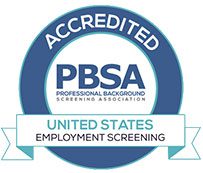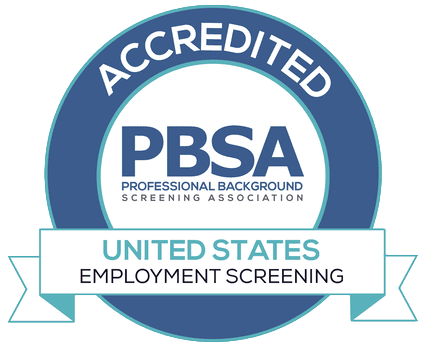
Informational Adverse Action Checklist
When findings from a background check uncovers data potentially impacting a candidate’s suitability for hire, it’s crucial to exercise care and adhere to the legal protocols concerning adverse action. The Federal Fair Credit Reporting Act (FCRA) mandates a two-step procedure for employers prior to denying employment due to adverse background check results.
The Equal Employment Opportunity Commission (EEOC) has issued guidance to assist employers in reviewing information and preventing discrimination, even if unintended. The “nature-time-nature” test prompts you to consider;
- The nature and severity of the offense
- How long ago was the offense committed or the sentence completed?
- How does this offense relate to the position in question?
The EEOC further recommends that employers thoroughly evaluate all aspects of each candidate through an individualized assessment, including their past history and rehabilitation status. This individualized assessment is not only a recommended practice in adverse action scenarios but is also legally mandated in certain jurisdictions. A recommended approach to constructing and documenting your individualized assessment could involve reaching out to the candidate to discuss the findings, providing them with a copy of the report, and outlining their rights to review.
The steps to take may look like this;
-
- Communicate with the candidate via telephone or in person to discuss the record(s) that are being considered adverse. This could potentially clear up the adverse situation and you may make the decision to proceed hiring the candidate. If not, at this time, you would send a pre-adverse action notice, formally notifying the candidate that an adverse employment decision may be made based the information discussef and include a copy of the background check report for the candidate to review and address possible inaccuracies. Be sure to explain and include a copy of their Summary of Rights under the FCRA, which informs the candidate of their right to dispute possible inaccuracies.
- If the candidate does not dispute their findings within a reasonable amount of time or the allotted days, or if their dispute doesn’t result in amendment or change, send the final notice of adverse action indicating that an adverse decision was made.
- Be sure to check the specific laws surrounding Pre-Adverse and Adverse Action in your state and local jurisdiction as there may be additional steps required.
Adverse Action DO’s:
Adverse Action DONT’s:

Be sure to consult with your legal counsel and have them review your adverse action policy and notices/forms.
Periodic review is recommended to stay on top of state and local laws as well as the FCRA.
Please note that ProVerify is not a law firm. This publication is for informational purposes only.
